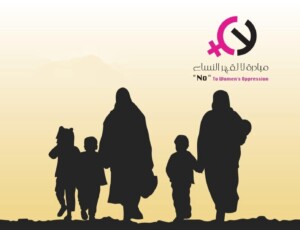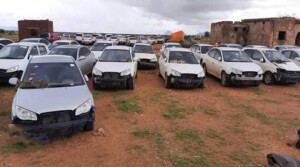Op-ed: Darfur – things are falling apart and protection of civilians matters
Protection of Civilians Matter—the ongoing killings in Kereinik of West Darfur as well as other parts of the Darfur region, not only, required an UN investigation but also, demanded Responsibility to Protect (R2P) act to be applied. What is happing in West Darfur is demonstrating Man-inhumanity-to-Man. Darfuris are dehumanised over the years, and we-the-people remember vividly:
 Dr Adeeb Yousif, former Wali (governor) of Central Darfur (File photo: SUNA)
Dr Adeeb Yousif, former Wali (governor) of Central Darfur (File photo: SUNA)
By Dr Adeeb Yousif, former Wali (governor) of Central Darfur
Protection of Civilians Matters—the ongoing killings in Kereinik of West Darfur as well as other parts of the Darfur region, not only, required an UN investigation but also, demanded Responsibility to Protect (R2P) act to be applied. What is happing in West Darfur is demonstrating Man-inhumanity-to-Man. Darfuris are dehumanised over the years, and we-the-people remember vividly:
When Kerending 1 – Intercommunal conflict occurs on December 31, 2019, we thought this is conflict to end all conflicts.
When Misteriya 1 Intercommunal conflict occurs on July 18, 2020 and the central government came to West Darfur, we-the-people thought: There would be no war there would be no killing
A year later when Kerending 2 Intercommunal conflict occurs on January 15, 2021, we-the-people thought Man would never visit pain upon another man.
When Jebel-Moon 1 Intercommunal conflict occurs on November 14, 2021, we-the-people thought it is the end of victimisation and dehumanisation.
When Kereinik 1 Intercommunal conflict occurs on December 4, 2021, we-the-people thought this would be the end of enmity. But, again we-the-people have seen Kereinik 2 on April 24, 2022.
Unfortunately, nothing has changed and apparently proving that the only thing we learned from history is that we learn nothing. we-the-people have observing many conflict occurs such as: Eljebel 1, July 19, 2020, Misteriya 2 July 25, 2020, Kerending 2 January 15, 2021, Eljebel 2 April 4, 2021, Jebel Moon 2 those were only in West Darfur. See the great German pastor Martin Niemöller’s lament in his poem, First They Came*.
The ongoing cycle of violence is totally unacceptable, so far is has resulted in the deaths of hundreds of innocent civilians, the displacement of hundreds of thousands from their homes, as well as a host of other atrocities. In three days between Friday April 22—25 2022, the militia has destroyed villages and killed 217 people most of the were civilians. According to local recourse estimates, more than 10,000 people were forced to leave their burned villages to Internally Displaced Persons (IDPs). Those who found themselves living in the IDPs camps are facing limited humanitarian services and poor security. Dennis McNamara, Director of the UN Internal Displacement Division, stated the reality: “The most present and important issue that IDPs face is that of protection and survival.” According to McNamara, this is a highly sensitive issue due to the whole emphasis given to national sovereignty. It is, therefore, the civilian population in Darfur who are seeking protection–one way to protect them is by applying the Responsibility to Protect (R2P) Act.
I have been observing enormous changes in the dynamics of the conflict—including the sad normalisation of the conflict as victims have been re-victimised. Nation-state is not the primary unit of the discourse. I argue that the nature of conflicts has changed and therefore the responses to inter-communal conflicts need to change. In her argument about “New Wars,” Mary Kaldor describes this transformation of warfare by making a distinction between Old Wars and New Wars, she highlights the fact that New Wars need new solutions. Military solution is not the way out in Darfur. I think a Social, Economic, and Political Solution is the best way to end the inter-communal conflict in Darfur. The lack of a culture of peace, landownership, limited resources, crimes, corporation, the proliferation of weapons, looting, and unemployment represent the major drivers of inter-communal conflicts.
The Culture of Revenge: I argue that the current Darfur conflicts could be accessed through ethnic division rather than political disputes. This creates a culture of revenge, which goes beyond the rebel factions to community, families, and the individual level. The culture of revenge is a major contributing factor to the continued conflicts in Darfur. Inadequate water sources and the lack of pastures constitute other major factors of conflict in Darfur. Different tribes enter into violent conflicts while struggling to secure water and pastures for their animals. These conflicts occur more frequently during dry seasons when water for domestic use and for animals is scarce. Most of the rivers are seasonal and stay dry most of the time. There are also few shallow boreholes that dry up quickly during the dry season. So people whose areas get dry early are forced to move to neighbouring communities in search of water, which leads to confrontations between the owners of water sources, and the outsiders who are mostly considered as “invaders.”
Proliferation of Small Arms: The porous border of Darfur region is one of the major challenges to its peace. The easy movement of individuals and groups across the border introduced the gun culture as people who have animals only feel secure when they have guns. So animals are the number one source of pride and wealth in the region and guns constitute a symbol of protection for that wealth. To many, the absence of either of the two is a real cause of frustration and powerlessness as they are a source of social status in society. Nomadic peoples are often perceived as a problem by the governments. Insecurity in these areas as well as civil wars in Darfur and the neighbouring countries, South Sudan, Libya, Chad, and Central African Republic has been one of the main sources of the proliferation of small arms and light weapons, making it easier for Darfurian to own arms. This inevitably has a serious effect on the region’s security situation and furthers the proliferation of small arms and the rise of gun violence.
Peace Treaty: The people of Darfur also demand accountability for a legitimate peace process. The Peace Treaty led to escalations in tribal fighting, increased violence towards innocent civilians and peacekeepers, and an increase in crime, looting, and corruption. The agreement unsuccessful to bring peace or stability to Darfur and as a result has created false divisions within communities and families–the social fabric and historical relationships of ethnic groups within Darfur are being actively destroyed.
* First They Came – by pastor Martin Niemöller
First they came for the Communists
And I did not speak out
Because I was not a Communist
Then they came for the Socialists
And I did not speak out
Because I was not a Socialist
Then they came for the trade unionists
And I did not speak out
Because I was not a trade unionist
Then they came for the Jews
And I did not speak out
Because I was not a Jew
Then they came for me
And there was no one left
To speak out for me.
Disclaimer: The views and opinions expressed in this article are those of the contributing author and do not necessarily reflect the position of Radio Dabanga.
 * Dr Adeeb Yousif, is former Governor of Central Darfur, People-to-People (PTP), Founding President and Conflict Analysis and Resolution Scholar Practitioner.
* Dr Adeeb Yousif, is former Governor of Central Darfur, People-to-People (PTP), Founding President and Conflict Analysis and Resolution Scholar Practitioner.











 and then
and then